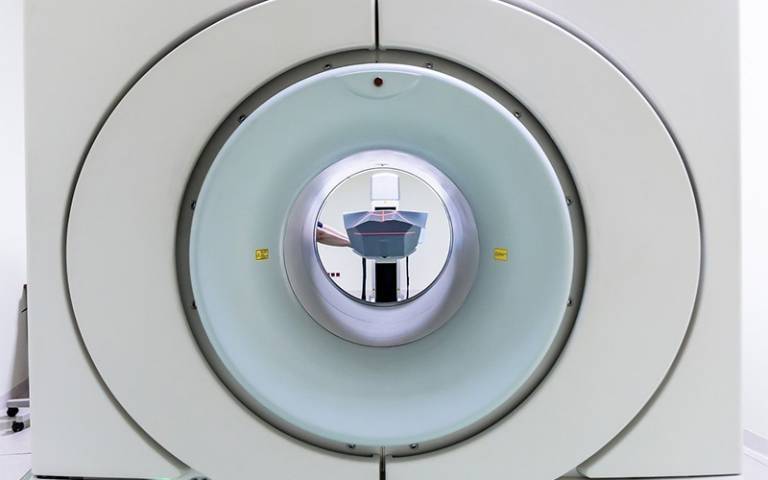Can MRI scans predict MS progression?
8 March 2022
Two UCL Queen Square Institute of Neurology and UCLH studies will look at whether analysis of advanced MRI scans can predict onset of multiple sclerosis (MS) and indicate which MS patients are at risk of developing irreversible disability.

Knowing who may develop progressive MS and whose disease is likely to lead to disability – and the reasons for onset and disease progression – may enable beneficial treatments to be given at an early stage.
Dr Declan Chard (Principal Clinical Research Associate, UCL Queen Square Institute of Neurology and consultant at the National Hospital for Neurology and Neurosurgery, UCLH) will lead both studies.
Many people with MS eventually develop progressive irreversible disability, which is thought to be mainly due to loss of nerve cells and fibres.
There are several possible reasons for nerves cells and fibres to be injured in MS, but it is not known which of these reasons is the most important and whether treatments can prevent disability long before it develops.
In one study researchers will look at which features of MRI scans are predictive of progressive irreversible disability.
The study, funded by the MRC, will analyse data collected a decade ago from people with and without MS. The team will invite participants to have a follow up assessment, and researchers will see if any of the measures obtained a decade ago predict nerve cell and fibre damage, and disability, now.
In a separate complementary study, funded by the MS Society, the research team will investigate whether features from MRI scans collected decades before can predict onset of progressive MS, and associated disability.
The team will use scans and health data collected over a 20-year period from people who had had an episode of symptoms suggestive of MS, and use current advanced MRI scan analysis methods to see if features seen on the early scans, and changes over time, can predict who went on to develop MS.
Dr Chard said: "At present there are very few treatments that have proven effective in progressive MS, and there is major unmet need in current clinical practice for these treatments.
“If we can predict early who may develop progressive MS and which patients may develop irreversible disability – and importantly better understand the mechanisms driving onset and progression – we may be able to more effectively target treatments and identify patients who could benefit from them earlier."
“Both studies are good examples of the scientific importance and clinical relevance of long-term research, and the value of sustained funding over the years to achieve them.”
Dr Nitin Sahi (Clinical Research Fellow at UCL Queen Square Institute of Neurology and UCLH) said: “Although we now have several treatments to reduce the risk of relapses, we still do not know what ultimately causes progressive MS and irreversible disability.
“It is exciting to be involved in these two complementary studies. They will provide important insights into the disease processes behind disease progression in MS and will also help to train the next generation of clinical researchers in the field.”
Links
Source:
UCLH Biomedical Research Centre (BRC)
 Close
Close

